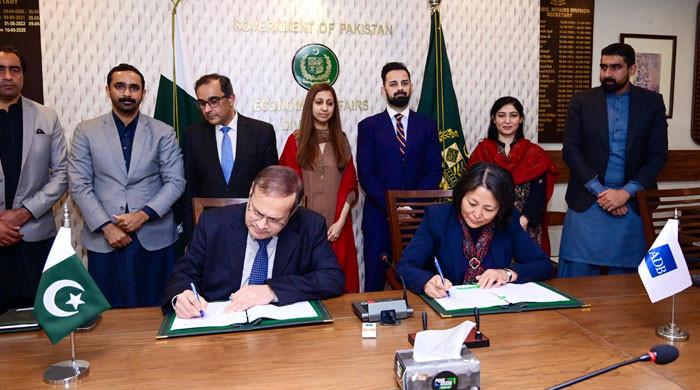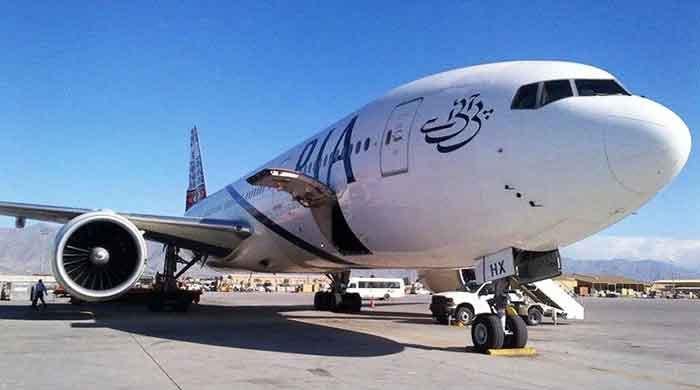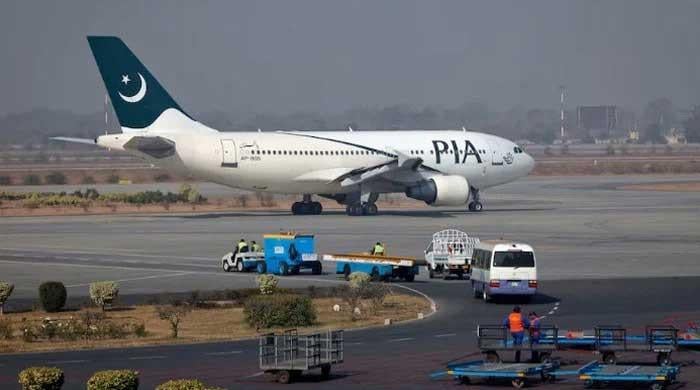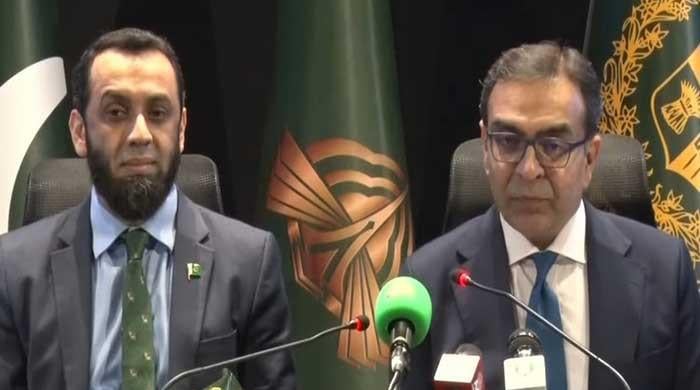Miftah Ismail says economic hardships to persist till September
Finance minister says UAE set to invest in PSX; clarifies rupee's uptrend is without "direct" intervention
August 06, 2022
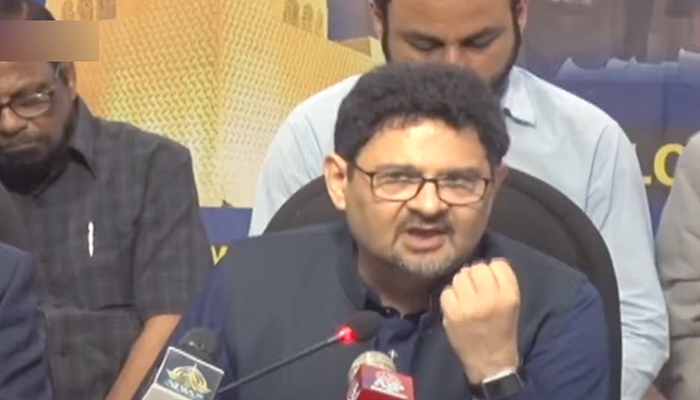
- Finance minister says UAE set to invest in Pakistan's stock exchange.
- He says rupee's uptrend is without government or SBP intervention.
- Miftah apologises to traders and nation for economic hardships.
KARACHI: Finance Minister Miftah Ismail said Saturday that Pakistan's economic hardships would continue till September but expressed hope of reviving the economy after obtaining loans from global institutions and friendly countries.
In a press conference after meeting the Karachi Chamber of Commerce and Industry (KCCI), the finance minister said that the coalition government had taken tough decisions — cutting subsidies and broadening the tax base — after coming into power — and apologised to the businessmen for it.
"We will face difficulties till September. You will have to pay your share of tax no matter what [...] and I apologise for the difficulties everyone is facing, but my primary objective is to save the country from default," Miftah said.
The finance minister said that economy is moving in the right direction due to the "prudent policies" of the government and steps that are being taken to stabilise it.
And for bringing the economy on the right track, the finance minister said the government had to take tough decisions of withdrawing subsidies on petroleum products and power.
UAE investment
The finance minister also confirmed that the United Arab Emirates (UAE) was investing in the country’s stock exchange — in its bid to expand bilateral economic ties.
Earlier, the UAE expressed its intention to invest $1 billion in Pakistani companies in various economic and investment sectors.
The state-owned Emirati news agency reported that the move aims to explore new investment opportunities and areas for cooperation in projects across various sectors, so as to expand bilateral economic relations in the best interest of the two countries.
"...when I asked a [Gulf] state's officials to give us loans, they told me that we haven't repaid their earlier loans. I feel ashamed. It isn't a good feeling that you still have to ask for loans," he said.
Rupee and import ban
Responding to a question about the rupee’s upward trajectory against the US dollar, the finance minister clarified that neither the State Bank nor the government had “directly intervened” to bring the dollar’s value down.
The Pakistani rupee has been on a winning streak as it continued to gain against the dollar for the sixth consecutive session this week after it broke its 10-day losing streak.
The rupee closed at 224.04 this week, and it is expected to keep gaining in the coming days. Also, if the International Monetary Fund (IMF) provides the much-awaited loan, then experts believe the dollar will fall to 180-190.
Moving on to the ban on the import of luxury items, the finance minister said it would continue till next month as it was in the best interest of Pakistan's economy.
However, the government last week lifted the ban on the import of non-essential and luxury products imposed earlier in May. But the restrictions on the import of completely built-up automobiles, mobile phones, and home appliances did not end.
Moreover, the foreign exchange reserves continued to deplete and fell to $8,385.4 million as of July 29.
The move, however, helped shrink Pakistan's exports near a quarter over the previous month and 5.2% over the corresponding month of the last fiscal year.
But not losing hope, Miftah told the businessmen: “The government has set the export target at $35 billion for the current fiscal year [...] prove me wrong and take it till $36billion.”
Moreover, due to the unavailability of raw materials amid the import ban, Pakistan’s two leading car assemblers, Toyota and Suzuki, have started observing partial shutdowns of their plants.




